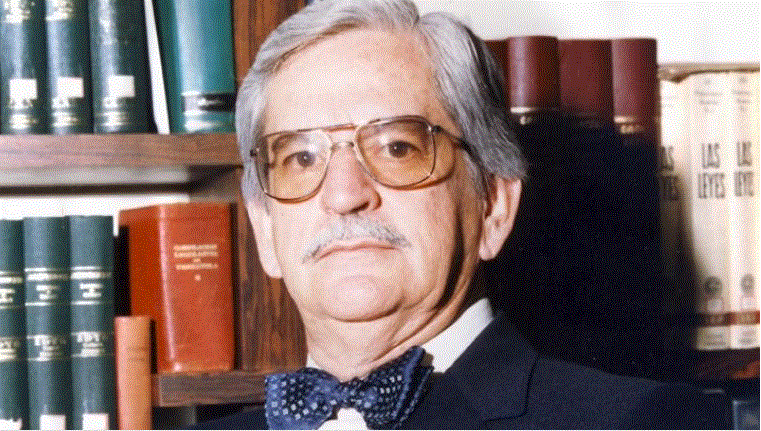Three out of ten adults in Argentina have high blood pressure, the leading cause of premature death and disability in the country and the world, which is why specialists stress the importance of incorporating healthy habits, maintaining controls and medication. The WHO determined that May 17 is the World Day of this disease.
“Arterial hypertension continues to be the first cause of premature death in Argentina and in the world,” he told Télam Marcos Marín, president of the Argentine Society of Arterial Hypertension (Saha).
High blood pressure is caused by the sustained increase over time of the force exerted by the blood on the walls of the arteries. Blood pressure above 140/90 millimeters of mercury (mmHg), which is commonly known as 14/9, it is considered hypertension.
According to the Argentine Federation of Cardiology (FAC), in Argentina 3 out of 10 adults are hypertensive, but only 1 in 4 is diagnosed, treated and adequately controlled.
In Argentina Approximately 100,000 people die each year from cardiovascular diseases. and it is estimated that a third of these deaths are due to the fact that their pressure was not well controlled,” said Marín.
The cardiologist stressed that premature deaths from hypertension are due to three factors: because it is a prevalent disease, where “40% of the population over 18 years of age is hypertensive”, secondly, “it causes a lot of damage”, since it is the first cause of cerebrovascular accident (CVA) and the second cause of heart attack and kidney failure. And thirdly, “it has a low degree of control,” said Marín.
According to the data obtained, in the last population study of the National Registry of Arterial Hypertension (Renata-2) it was shown that Of all hypertensive patients, almost 40% were unaware of their diseaseand of the other 60% who know it, 55% are treated but only 25% are properly controlled.
To combat it, it is necessary to eliminate toxic habits such as smoking and being sedentary, maintain weight, control cholesterol, change the diet such as incorporating fruits, legumes, cereals and sustain recreational or aerobic activities such as going for a walk, dancing or swimming.
Saha’s president warned that the problem is that within the 40% of people who do not know they have hypertension, some do not have access to the health systemThat is why initiatives such as “Hearts” have been promoted in the country, led by the World Health Organization in the world and the Pan American Health Organization to improve the prevention and control of cardiovascular diseases, and promote healthy habits. However, he indicated that “the patient who has access is not adherent, he is more afraid of medication than of pressure”.
“Getting the population to perform a correct blood pressure record at least once a year could help in the screening of this pathology,” he told Télam Miguel Javier Schiavone, Director of the Argentine Council of AHT of the Argentine Society of Cardiology (SAC).
Regarding risk factors, the National Ministry of Health indicates: hereditary predisposition, age (over 60 years), obesity, excessive consumption of salt and alcohol, smoking and lack of physical activity.
Schiavone recalled that hypertension It’s “a silent disease” since all the symptoms attributed to it, such as headache, bleeding from the sclera (white of the eye) and nasal bleeding, “have been shown to be non-related”.
In this sense, he assured that these symptoms are actually “directly the cardiovascular commitment generating stroke, heart attack, renal alterations and peripheral artery disease”.
Diego Martínez, president of the arterial hypertension committee of the Facagreed in dialogue with Télam that hypertension “does not produce specific symptoms”, that is why control must be motivated with a blood pressure monitor and blood pressure record, so when high values are seen “it is a wake-up call” to consult with a medical.
“Hypertension can produce complications in the central nervous system, causing dementia or stroke. At the ophthalmological level, vision complications, cause blindness. Also complications at the vascular and arterial level, at the cardiac level such as coronary problems, heart attacks or arrhythmias, and kidney dysfunction,” Martínez said.
The specialist recognized that this disease “has no cure” but can be prevented with healthy lifestyle habits and treated with pharmacological treatment indicated by a health professional.
“Eliminate toxic habits such as smoking and being sedentary, maintain weight, control cholesterol, change diet such as incorporating fruits, legumes, cereals and sustain recreational or aerobic activities such as going for a walk, dancing or swimming,” listed the cardiologist.
As for the salt consumption in the country, a person ingests 12 grams per day and doubles the five grams per day recommended by the WHO as a maximum.
Most of this consumption, between 65% and 70%, comes from processed or industrialized foods, and is even present in foods that may not taste salty, such as breads, sweet cookies, cereal flakes, dairy products and preserves , pointed out from the College of Nutritionists of the Province of Buenos Aires.
For this reason, to reduce or avoid salt consumption, it is essential to minimize the purchase of ultra-processed products.
“It is key to return to the habit of making homemade preparations with natural foods such as legumes, meat, eggs, vegetables and seasonal fruits. In other words, consume less packaged products and more real food”, assured Andrea Delledonne, a graduate in Nutrition and member of the Board of Directors of the Buenos Aires Association of Nutritionists.
On the other hand, the consumption of table salt, either for cooking or adding to meals once served, represents around 15% of the total daily intake. “Many people add salt even before they have tasted the food served, so it is also important to work on this aspect, encouraging them to take the salt shaker off the table,” the nutritionist stated.


















